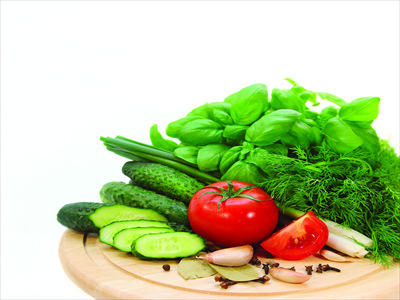
Beijing has a bounty of unique and delicious vegetables for the meat-wary.
"Many (customers who come in) are asking the question, 'What can we eat?' The answer is often more fruits and vegetables," said Ashton.
And for new expat vegans and vegetarians to the city, this question of "What can we eat?" becomes more daunting than ever with language and cultural differences. Asking for no meat in a Beijing restaurant may still land you a dish sprinkled with ground up meat bits. Asking for no seafood could still produce a dish with tiny shrimps imbedded in the sauce.
But once the linguistics have been ironed out (see "Tips on staying vegan in Beijing"), Fanelli extols the variety of veggie-friendly offerings in China.
"You get all kinds of mushrooms and greens [in Beijing] that you don't get in the US," she said. "The Chinese spectrum, the idea of what you can eat, is so broad. People aren't afraid of weird food. So you get all these beans, wheat gluten and greens."
Ashton added, "Once it becomes a habit, it becomes less taxing on the brain."
Veggie-only establishments also make the transition smoother. Popular vegetarian restaurant Samadhi in Chaoyang district offers an uncompromising menu completely devoid of meat, and even meat imitations. Executive Chef Zhao Bin, however, admited, "Yes, I eat meat!" Hopefully he won't roast for it.
Should he, or any other Beijinger, want to transition away from a carnivorous diet, nutritionists recommend keeping a close watch on getting enough of vitamin B and iron.
The next step
Being a vegan or vegetarian often opens doors to more healthy life choices.
Ashton said that many people have been coming in because they want to eat and feel healthier. Detoxing and holistic health continue to gain new followers.
"We do a lot of farm tours because there is still a trust issue when it comes to becoming organic in China. People want to know and visit farms," Ashton said.
In Beijing, many farms are not certified organic, but they are pesticide and hormone free. Supporting organic markets is a direct way of supporting local organic farming communities.
Fanelli hopes to continue bridging the gap between restaurants and organic farmers. As more people ask for it, it's slowly become a reality.
Tips on staying vegan in Beijing
Former restaurateur pioneering the farm to fork concept in the heart of the China's capital, Laura Fanelli has been involved in the organic movement in Beijing since 2009. Though Fanelli has the strong benefit of being fluent in Chinese, she has general tips for both the novice and practiced alike.
- Learn the phrase "Wo bu yao rou mo." This translates to, "I do not want pieces of meat." Often, many Chinese dishes will have sprinklings of meat as flavor. Specify that you don't want this.
- Ask for no seafood specifically. Tell your server that you don't want seafood either by saying, "Wo bu chi hai xian."
- Stick with dishes you know aren't likely to have meat. Di san xian is usually a safe dish to order, with sautéed potato, green pepper and eggplant.
- Try Yunnan cuisine, which is usually great for vegans and vegetarians alike. Check out Dali Courtyard in Gulou for an upscale evening or the classy but cheaper Middle 8th in Sanlitun.
- Have the restaurant agree ahead of time that you won't pay for the food if there is meat in it. Then they will have made you a promise and will be less likely to break it.
- Cook yourself and invite friends over.
- Be flexible and reasonable. If sending a dish back isn't an option, just eat the vegetables. They were probably cut on the same board the raw pork was anyway. "Nothing is a guarantee," Fanelli said.

Copyright ©1999-2011 Chinanews.com. All rights reserved.
Reproduction in whole or in part without permission is prohibited.